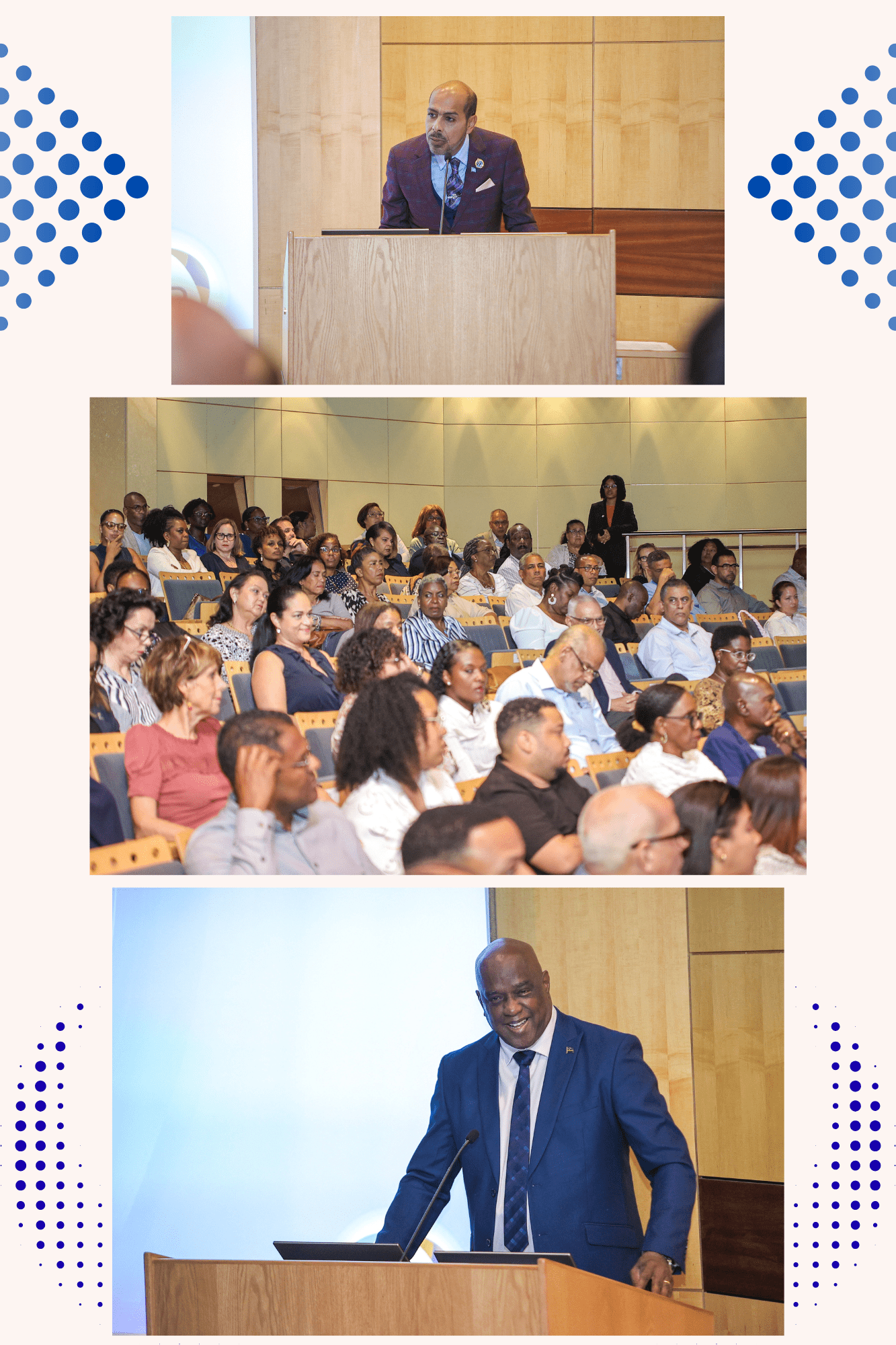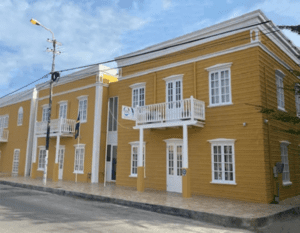Press release
Spirited debate on AI in Curaçao as Future of Work takes center stage
Willemstad, October 2, 2025 — In a packed auditorium at the Central Bank of Curaçao and Sint Maarten, Curaçao’s Social Economic Council (SER) convened its third “Future of Work” seminar on Tuesday under a title that left little doubt about its urgency: “Living and Growing with AI.”
Opening the event, Education Minister Sithree van Heydoorn and the council’s secretary-general, Raúl Henriquez, struck a common chord: artificial intelligence is no longer a far-off abstraction but a disruptive force already reshaping economies and daily life. “Delay means disadvantage,” Mr. Henriquez warned, especially for small island states competing for relevance in a fast-changing global market.
The day’s speakers painted a picture at once hopeful and cautionary. Mr. van Heydoorn called for a national push on digital literacy, warning that without stronger schools and infrastructure, Curaçao risked deepening its digital divide. Mr. Henriquez pressed for legal guardrails, arguing that transparency, human oversight, and the rule of law must anchor any deployment of AI.
From there the discussion widened. Denneth van der Veen, an innovation consultant, argued that digital skills could give Curaçao and the Caribbean a competitive edge. Curt Belfor, head of the island’s Regulatory Authority, pointed to the need for transparent governance. Juan Carlos Goilo, founder of Global Minds Network, urged citizens to seize their agency in a world increasingly mediated by algorithms. Nicole Wever, a specialist in skills development, called education and lifelong learning the island’s most urgent investment.
The ‘Open Mic’ session gave voice to a wider range of concerns. Nevita Mezas, a labor market analyst, spoke of remote work and digital nomadism as both a threat and an opportunity. Elgenie Pieternella, a social entrepreneur, highlighted the vitality of Curaçao’s informal economy. Roland Ignacio, a veteran union leader, insisted that organized labor must have a seat at the AI table to protect workers’ rights. And Albert Martes, the island’s meteorological director and chair of the Curaçao Climate Change Platform, reminded the audience that AI will also shape how Curaçao confronts rising seas and environmental risks.
What made the seminar different from many policy gatherings was its tone: interactive, even combative at times. Questions from the audience ranged from fears of brain drain to whether AI might undermine privacy or hollow out jobs in tourism, Curaçao’s economic backbone. Panelists agreed that only a broad coalition of government, business, unions, and civil society could ensure AI was deployed fairly.
Repeatedly, speakers returned to one theme: Curaçao cannot go it alone. References to UNESCO’s ethics framework, among others, underscored the need to tie local policy to global standards. By doing so, participants argued, the island could claim its place as a small but forward-looking state that embraces technology while safeguarding justice and sustainability.
Closing the day, Mr. Henriquez was blunt. Technology, he said, is just a tool; the real test is whether people can adapt. “We must act collectively — government, business and society — to build a truly dynamic market in this AI era,” he told the audience. “Only then can Curaçao not just live with AI but grow through it.”



